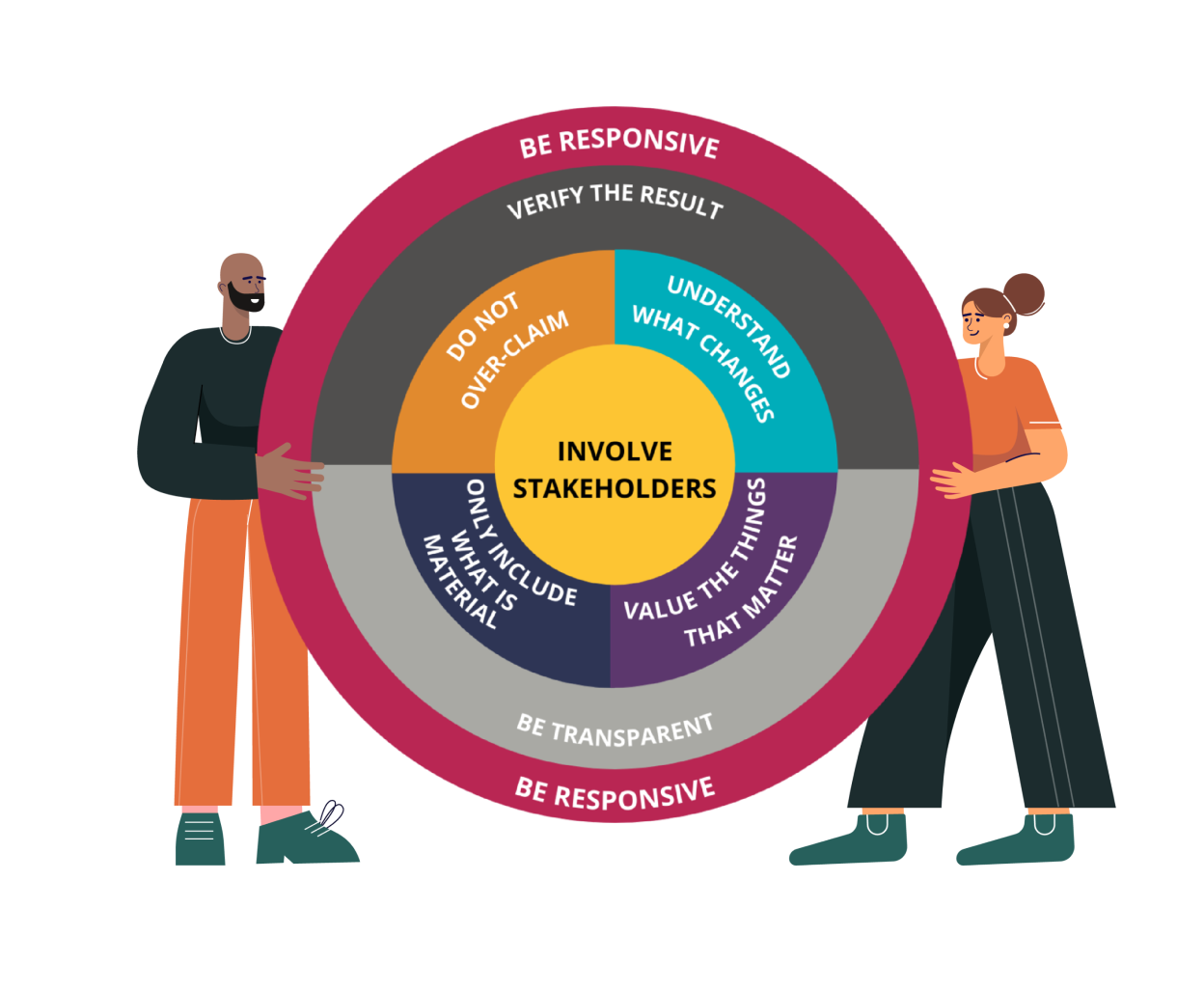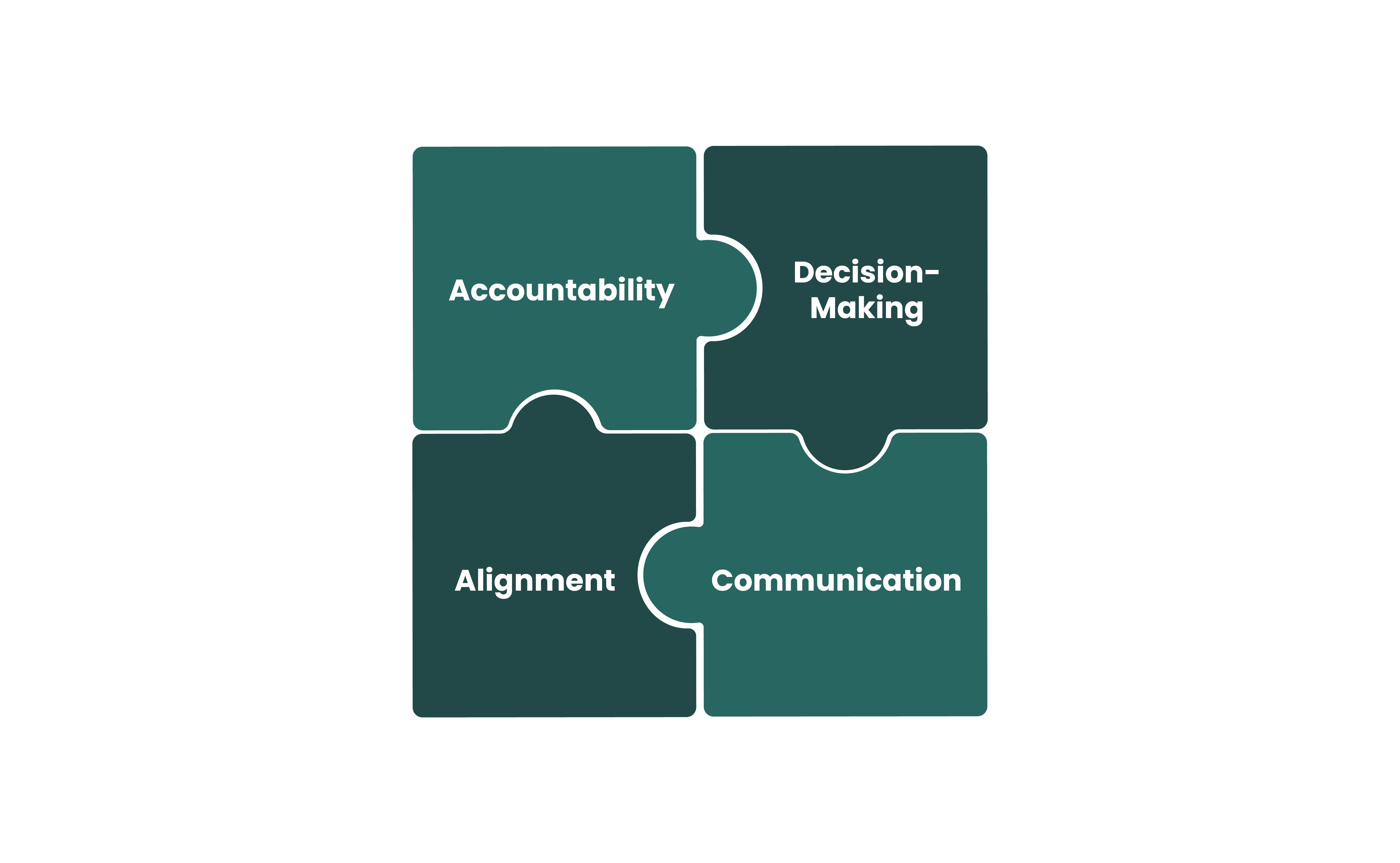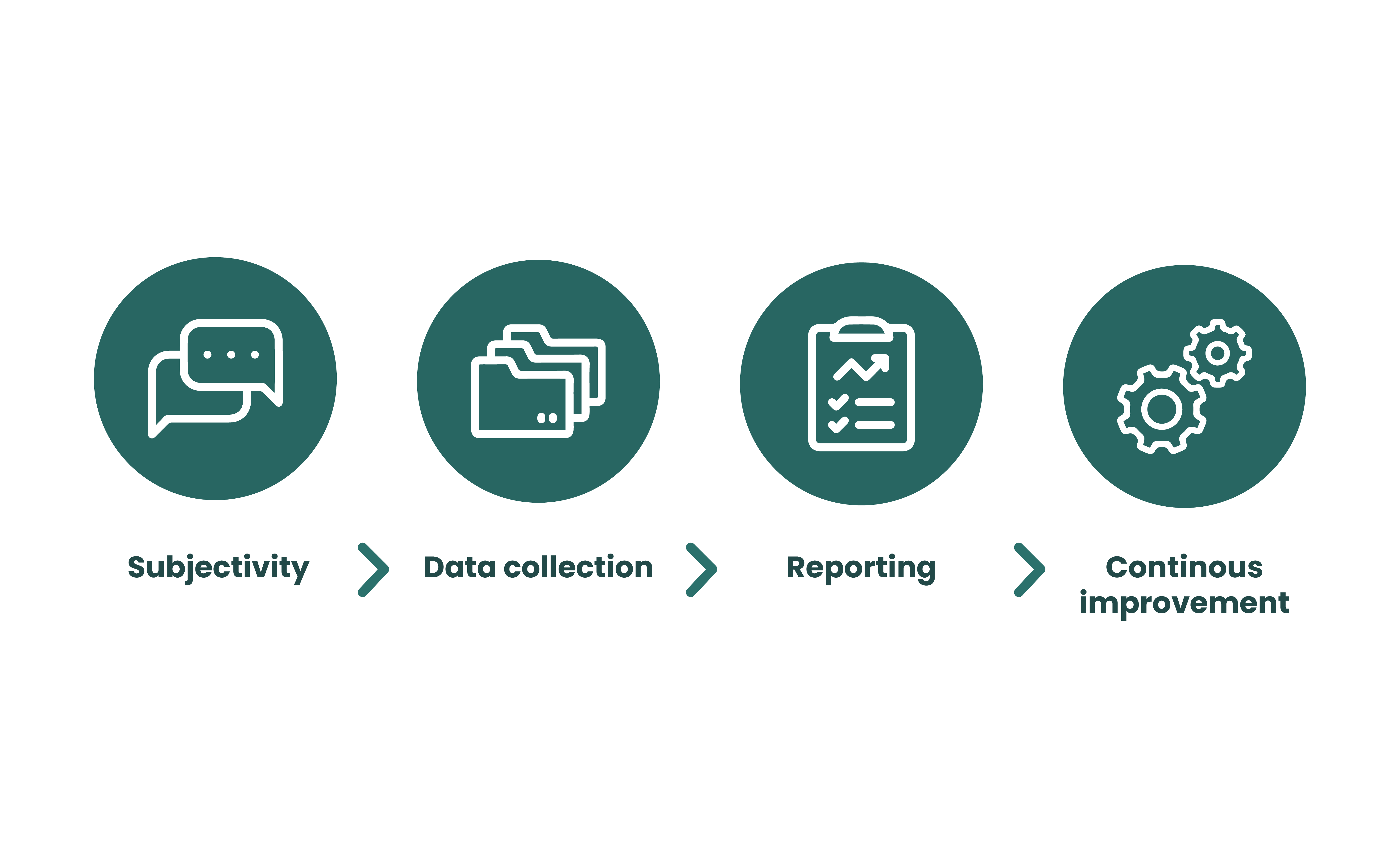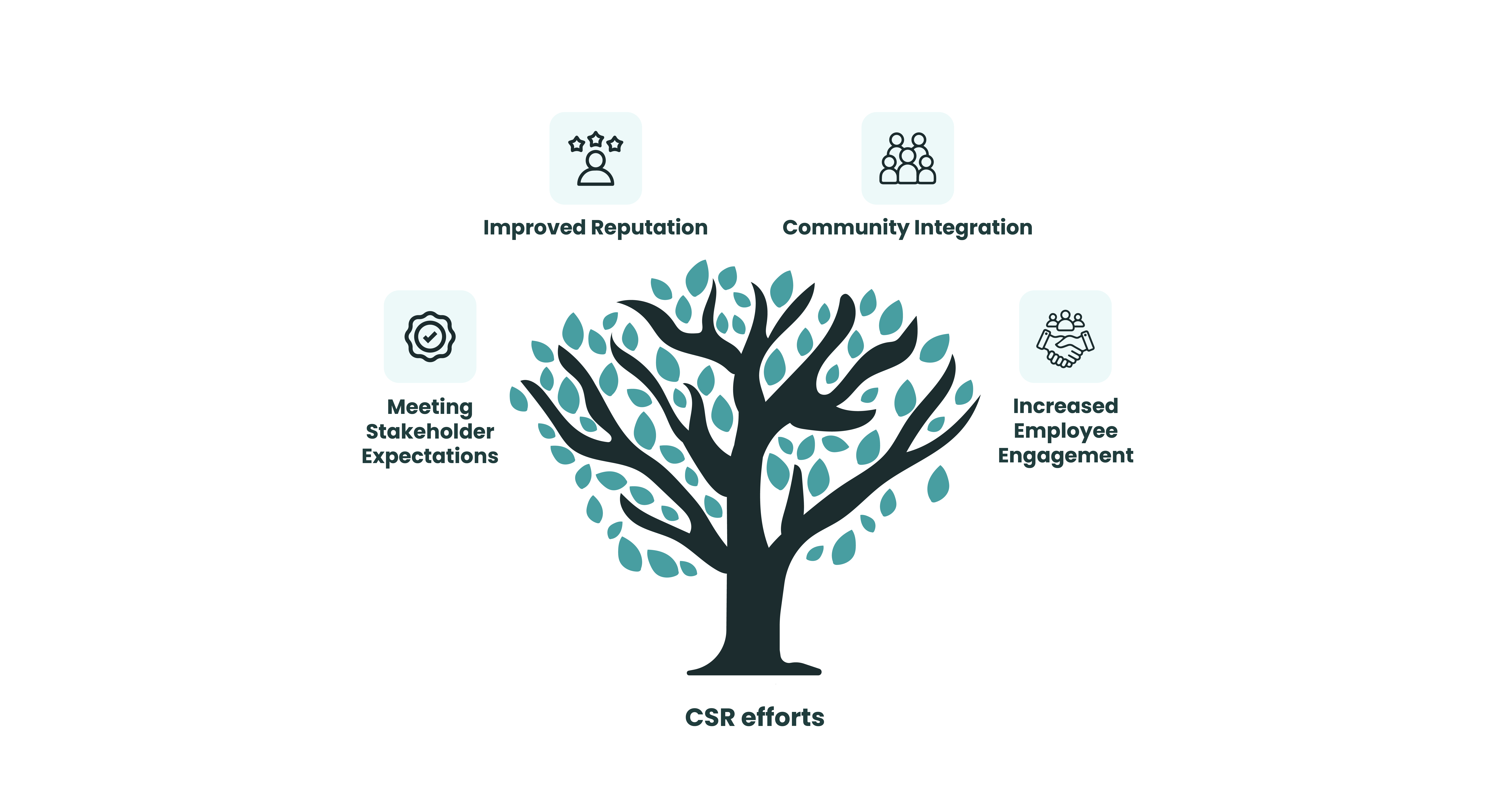Share
Going beyond the compliance-based ESG

Zoltán Kozma
 Verified writer
Verified writerPUBLISHED ON October 18, 2023
The term ESG has been with us for a while. Initially, the financial sector coined it in 2005 and it became a guiding compass for businesses worldwide.
Over the past years, we saw many different frameworks emerging to help reduce a company’s exposure to long-term ‘Environmental’, ‘Social’ and ‘Governance’ (ESG) risks. These include: B-Corp, Global Reporting Initiative (GRI), Social Housing Reporting Standards among many others.
These frameworks look at avoiding harm with the creation of compliance, rules and policies rather than measuring positive contributions. However, there's a growing realisation that compliance alone falls short of creating the transformative positive impact our world urgently needs.
What exactly does this shift entail, and how can organisations navigate it successfully?
In this article, we'll explore how adopting a social value framework alongside ESG compliance can propel businesses toward "double materiality" and the attainment of "net positive" sustainability goals.
We’ll also dive deep into the pivotal role that employee volunteering programmes play in this journey.
TLDR:
- ESG is evolving from a compliance-based approach to one focused on creating transformative positive impact.
- Sustainable Development Goals (SDGs) and initiatives like the Global Reporting Initiative (GRI) emphasise the importance of not just following rules but making a meaningful impact.
- Add social value to the mix to achieve “net positive” sustainability goals
- There are 8 key principles of social value that provide guidance for organisations seeking to make a positive difference in society.
- Measuring social value is essential for accountability, decision-making, communication, and alignment with stakeholder expectations.
- Employee volunteering programmes align with social value principles and offer benefits like improved reputation, increased employee engagement, and meeting stakeholder expectations.
- Embracing a holistic approach that combines ESG and social value principles is the future of responsible corporate engagement.
- 3 priorities to look at to make a meaningful social and environmental impact.
But first, you might ask.
What is ESG?
ESG stands for Environmental, Social and Governance. It is a way to measure and encourage companies to be good for the environment, people, and society, not just focused on making money. Basically, it uses a set of criteria to assess a company’s performance and impact on those 3 areas.

In recent years critics have also pointed out that within the ESG framework, the 'E' (Environmental) and 'G' (Governance) pillars have received more attention in recent years, while the 'S' (Social) aspect has been comparatively neglected.
Some people think this difference is because some industries have different priorities, but it's also because it's hard to clearly measure and understand the 'S' part, which includes both negative social impacts and positive well-being.
Additionally, traditional ESG frameworks fall short of capturing the value that companies generate for the broader economy, including the development of skills and the creation of employment opportunities.
The shift from compliance-based ESG
Around the same time that people started paying more attention to ESG, the United Nations set some important goals in 2006 called the Millennium Development Goals. These goals asked both businesses and governments to actively help with certain social and environmental issues.
Then, in 2015, the United Nations launched the Sustainable Development Goals for 2030, a big global plan that 138 countries agreed to follow.
This was a turning point. It showed that just following ESG rules like a checklist wasn't enough for real sustainability. The world was facing big challenges, and it was clear that organisations need to do more than just meet the basic requirements.
So, the United Nations teamed up with leaders from different areas to get businesses to not only follow the rules but also take real action to make things better for society and the environment.
For example, organisations like the GRI now help businesses include the Sustainable Development Goals (SDGs) in their reports. And B-Corp has a tool called the SDG Action Manager to help companies align their actions with sustainability goals.
The rise of social value
Next to these, to encourage the private sector companies, the public sector in the UK integrated certain standards into the procurement process to encourage social value creation. Social value refers to things that we experience day to day that have an impact on our overall well-being — including health, workplaces and the environment.
These rules started as voluntary in 2012, but in 2021 with the Social Value Act, to have a minimum 10% social value in each public procurement tender became a regulatory requirement. They measure this by collecting data on how people's lives change because of what companies do and quantifying the value in monetary terms.
All of these efforts show that it's not enough for companies to just follow rules. It's about going beyond the basics to create a positive impact on society.
The 8 key principles of social value
In the realm of ESG and the quest for greater social impact, Social Value International set up eight guiding principles known as the key principles of social value.

These provide a roadmap for organisations seeking to make a meaningful and positive difference in society:
(1. Involve stakeholders
Make sure to involve everyone who might be impacted by your work. That means talking to all the people and groups who care about what you're doing and listening carefully to their needs and priorities.
(2. Understand what changes
Every action we take can have an impact on the world around us, whether it's intentional or unintentional, good or bad. By understanding the ways that our work can create positive outcomes - like improving people's health or protecting the environment - we can make sure that we're doing the most good we possibly can.
Take some time to learn about the impact that your work has on the world. Talk to people, do some research, and think about how you can use your skills and resources to create positive social value.
(3. Value the things that matter
Deciding how to use our resources wisely means thinking about what's important to the people who will be affected by our choices. By comparing the value of an activity to how much it costs, we can make better decisions about how to use our resources. This helps us communicate our ideas more clearly and make a bigger impact.
(4. Only include what is material
When we're reporting on our work, there's so much information out there that we can't include everything! So, we have to decide which outcomes are the most important to report on - the ones that would really make a difference to stakeholders. This can be tricky, but we can make a good judgement by thinking about whether leaving out a certain piece of information would change how people think about what we're doing.
Finally, it's important to have an assurance process in place to make sure we're reporting on the most important things. That way, people can feel confident that they're getting a true and fair picture of our work.
(5. Do not overclaim
It’s important to only take credit for the things that we actually did. That means figuring out what kind of change we caused, compared to what would have happened anyway. To do this, we can look at things like past trends and benchmarks, to see how much of the change was really because of our work. By focusing on the outcomes that matter most to the people we're helping, we can create a more collaborative approach to creating positive change. This helps everyone understand how they can contribute to making the world a better place.
(6. Be Transparent
We need to be honest about how we came to our conclusions. That means being clear about who we talked to, what we measured, and how we decided what was important. To do this, we need to document our decisions carefully, and be transparent about how we collected information and what we considered. We also need to talk to the people who were affected by our work and share our results with them. Finally, we need to be willing to change what we're doing based on what we learned. This makes our analysis more accurate and shows that we're committed to making a real difference.
(7. Verify the Result
When we're reporting on the impact of our work, it's important to have someone else verify our work. That way, people can feel confident that the decisions we made were fair and reasonable. Because there's always some subjectivity involved, we need an independent person or group to give us a second opinion. This helps stakeholders trust that the account of value is accurate and reliable.
(8. Be Responsive
We want to do the best we can as quickly as possible when we’re trying to make a difference. That means making smart decisions at every level of our organisation. To do this, we need to have a plan that's based on three kinds of decisions: big-picture goals, specific actions, and improvements to what we're already doing.
We also need to have a schedule for when we'll make these decisions and a way to measure how we're doing. Last but not least, we need to be accountable for our actions by reporting on our progress to the people we're trying to help. This helps us stay on track and make the most of our resources.
Measuring social value
To be able to tell whether we’re making a meaningful impact, measuring and quantifying social value becomes paramount. Because let’s face it — just having good intentions is not enough.
Organisations must also assess and communicate the tangible benefits they generate for society. (We shared tips, insights and how to get started with social impact measurement here.)
Measuring social value serves several purposes:

(1. Accountability: It allows companies to be accountable for their actions and investments in social programs. By quantifying the outcomes of these initiatives, they demonstrate transparency and integrity in their efforts to create a positive impact.
(2. Decision-Making: Measurement informs future decisions. It helps organisations understand which programmes are most effective, where resources should be allocated, and how to optimise their social contributions.
(3. Communication: Measuring social value enables organisations to communicate their impact effectively. Stakeholders — including employees, customers, investors, and the wider community, can see the tangible results of the organisation's social initiatives.
(4. Alignment: Measuring social value ensures that organisations align their efforts with the expectations and priorities of their stakeholders, fostering stronger relationships and trust.
There are quite a few methodologies that exist to measure social value, and organisations can choose the one that best fits their goals and resources.
Two prominent frameworks in this regard that we would highlight are the HACT (Housing Associations' Charitable Trust) and TOMs (The Outcomes Measurement Framework).
HACT provides a comprehensive framework for measuring social value in the housing sector. It offers a structured approach to assessing the impact of housing providers and their programs on residents and communities. This framework includes key indicators and metrics for evaluating social value, such as the well-being of residents and the economic benefits generated within communities.
TOMs is a versatile, outcomes measurement framework that can be applied across various sectors. It allows organisations to identify, measure, and communicate the social value they create. It offers a standardised approach to data collection and reporting, making it easier for organisations to compare their impact with others in their industry.
However, measuring social value also presents challenges. These challenges include:

- Subjectivity: Assessing the value of social outcomes can be subjective, as different stakeholders may perceive the same impact differently. It's important to consider diverse perspectives when measuring social value.
- Data Collection: Collecting accurate and relevant data can be resource-intensive. Organisations must invest in data collection and analysis processes to ensure the credibility of their measurements.
- Reporting: Communicating social value in a clear and compelling manner is crucial. Organisations should strive to make their findings accessible and understandable to a broad audience.
- Continuous Improvement: Measuring social value is an ongoing process. Organisations should continually refine their methodologies and adapt to changing stakeholder expectations and societal needs.
Volunteering goes beyond compliance-based ESG
Volunteering programmes play a pivotal role in the journey toward going beyond compliance-based ESG initiatives. They are not just about fulfilling corporate social responsibility (CSR) checkboxes but represent a genuine commitment to achieving "net positive" sustainability goals. They’re aligned with the principles of social value by its nature, making them an effective vehicle for creating positive social and environmental impact.
Volunteering does not just have positive effects on us on an individual level, but it also offers a compelling business case. These programmes are strategic components of an organisation’s CSR efforts as they serve multiple purposes:

Improved reputation: Volunteering programmes can enhance your organisation's reputation by demonstrating its genuine commitment to social and environmental causes. They showcase a proactive approach to responsible business practices.
Increased employee engagement: Engaging employees in volunteering fosters a sense of purpose and belonging. It boosts job satisfaction, improves productivity, and increases employee retention rates.
Stakeholder Expectations: Stakeholders, including customers, investors, and the wider community, increasingly expect organisations to go beyond compliance and actively contribute to society. Volunteer programmes align with these expectations.
Community Integration:
Volunteering allows organisations to become integral parts of their communities. They forge stronger relationships and foster customer loyalty by demonstrating a vested interest in the well-being of local areas. (i.e. like how Aster does with their community)
3 priorities for taking the next steps
The future of responsible corporate engagement lies in embracing a holistic approach that combines ESG and social value principles. By aligning ESG initiatives with the principles of social value and measuring their impact transparently, organisations can show their genuine commitment to positive change.
By embracing social value principles, and harnessing the transformative power of volunteering, organisations can not only meet their ESG obligations but also lead the way toward a more sustainable future.
While giving our top 3 pieces of advice depends on your organisation’s specific goals, context and current state of engagement with social value principles and volunteering programmes, we would highlight the following ones:
- Integration and alignment - Ensuring that employee volunteering programmes are fully integrated into your organisation's overall strategy is a top priority. This alignment ensures that volunteering efforts are not seen as isolated initiatives but as integral parts of your company’s mission and long-term sustainability goals. Without alignment, it can be challenging to secure leadership buy-in and demonstrate the programme's impact on the broader goals.
- Impact measurement - Measuring and communicating the value generated by your volunteering programmes is crucial for transparency, accountability, and learning its effectiveness. It also helps in decision-making, resource allocation, and continuous improvement. Without effective measurement, it's challenging to showcase the real difference your programmes make.
- Employee Engagement: - Engaging employees in volunteering activities not only contributes to social impact but also improves employee satisfaction, retention, and overall well-being. Actively involving employees and providing opportunities for skill development through volunteering can lead to a more committed and motivated workforce.
(Looking for skilled-volunteering opportunities? Take a look here.)
These priorities are interrelated.
Alignment with your company’s strategy will help in setting clear goals for impact measurement, and a culture of employee engagement can support both alignment and impact measurement efforts.
Therefore, it's often beneficial to work on all three simultaneously while considering the unique needs and circumstances of your organisation.
___
Interested in learning more about employee volunteering programmes? Grab our 40+ pages ebook.